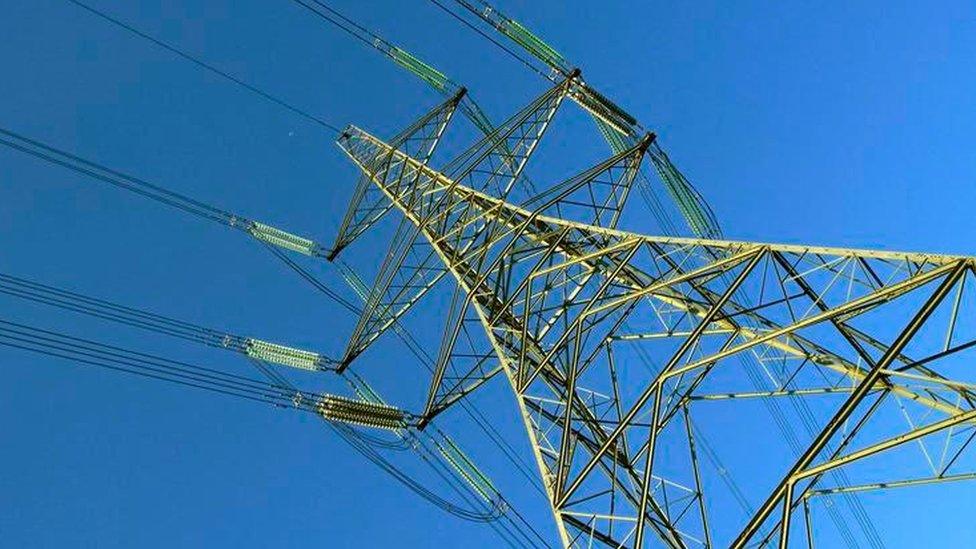National Grid to avoid being broken up
- Published

National Grid has escaped calls to be broken up to prevent conflicts between its dual role of owning and operating key parts of the energy infrastructure.
Instead, a legally separate, electricity system operator will be established within National Grid, the government says.
The new system operator will have distinct employees, directors and offices from other National Grid electricity subsidiary companies.
National Grid welcomed the move.
In a statement, the company said it was best placed to deliver the system operator role during a time when the energy landscape is changing rapidly.
Conflict of interest claim
National Grid owns and operates key parts of Britain's energy infrastructure.
It charges generators regulated prices to transport electricity across its power network.
But it also balances supply and demand across the network.
It's this system operator function that critics say should be separated out of the overall group.
Last year, MPs on the Energy Select Committee called for the introduction of an independent system operator.
They warned that despite efforts by National Grid and Ofgem to mitigate the potential for conflicts of interest between its dual roles, the issue appeared "intractable and growing".
Attention has focused upon National Grid's role in developing interconnector cables to import power from abroad. Critics say that, as the system operator, National Grid could prioritise sourcing electricity via these cables rather than from other sources of generation.
Pointing to the situation in the United States, the then chairman of the committee, Angus MacNeil, stated that: "The Independent System Operator model has worked in the USA. It is time for it to be brought to these shores."
But National Grid's chief executive, John Pettigrew, had argued against a break-up, saying that he was not convinced that creating a separate system operator would be beneficial to customers.
The company had also warned of the potential disruption to the energy sector and the risks to security of supply that a break-up could bring.
- Published8 December 2016

- Published24 September 2016
